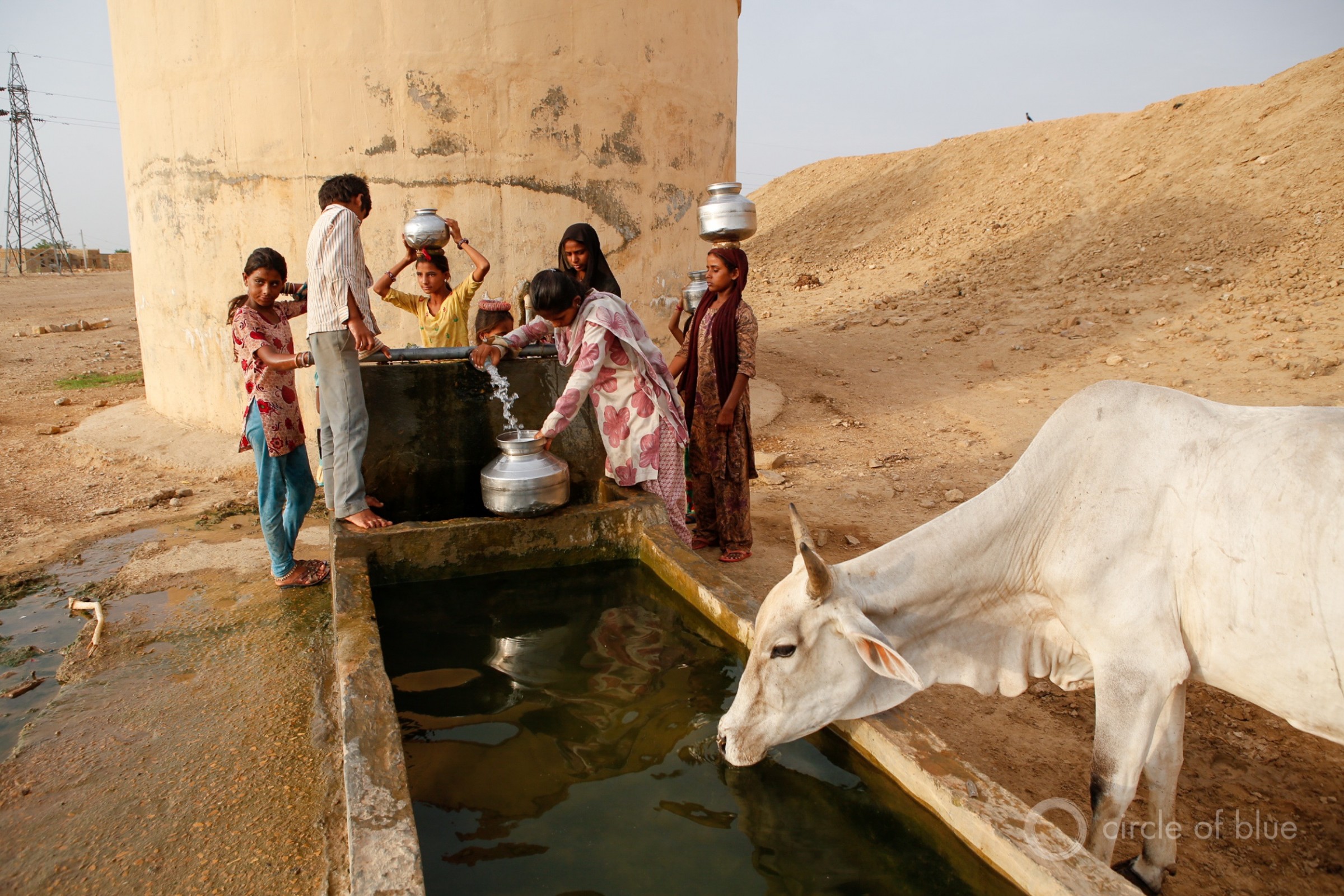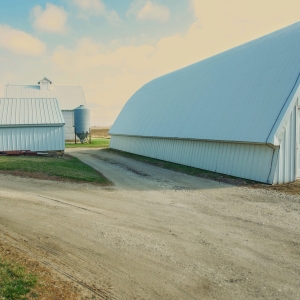The Stream, May 8, 2024: Farmers in India Turn to Ice Cream Sales As Water Scarcity Decimates Crops

Girls in Rajasthan, a state in northern India, gather water. Photo © J. Carl Ganter/Circle of Blue
YOUR GLOBAL RUNDOWN
- Two years after a U.S. Navy leak contaminated Hawaiian waters with jet fuel, a federal judge heard testimony of resulting sicknesses from dozens of affected families.
- A growing trend in Hungary is seeing hundreds of families move to countryside farms and participate in sustainable eco-village growing and trading.
- Indian farmers, impacted by water scarcity in dry summer months, are increasingly becoming seasonal ice cream vendors to make an income.
- A state of emergency is being sought for Brazil’s Rio Grande do Sul following catastrophic rains and flooding that decimated hundreds of communities.
Following the deaths of livestock, linked to polluted wastewater, several foreign-owned gold mines in Niger have been shut down.
“We counted 24 dead over two days and at the end of April we finally realized that the slaughter was being caused by harmful products in the water the mines were rejecting.” — Youssaf Houssa, the village chief of Tamannit.
In Fasso, another nearby village in northern Niger, one farmer counted at least 16 animal deaths associated with polluted drinking water, while others were unable to “keep track of how many they have lost,” France24 reports.
Four Chinese-owned mining sites have been temporarily closed by the country’s mining ministry, while local investigative reporters have confirmed that chemical waste from the mines have polluted village water supplies.
Just last month, following a seized shipment of gold from Niger to Dubai, the country’s authorities moved to crack down on unregulated mining, suspending the permits of many local and independent workers.
— Christian Thorsberg, Interim Stream Editor
Recent WaterNews from Circle of Blue
- Closing the Gap: Afghanistan’s Hunger Crisis in the Spotlight — Over 41 percent of people face crisis-level hunger or worse.
- Despite $Billions Spent, Tide of Harmful Farm Pollutants Grows Ever Larger — “Best management practices” are not impeding flow of farm nutrients into nation’s waters.
The Lead
Some residents living on and near Joint Base Pearl Harbor-Hickam, a naval facility located just north of Honolulu, have continued to experience vomiting, seizures, diarrhea, rashes, and other illnesses as a result of an underground fuel tank leak more than two years ago that contaminated their drinking water with thousands of gallons of jet fuel.
Nearly a dozen families, who are suing the U.S. government, shared these plights with a federal judge this week, the Guardian reports. The plaintiffs claim that the Navy also waited several days before warning residents about the spill, an accusation the Department of Justice disputes.
A whistleblower report, released around the time the leakage began, detailed Navy officials’ dissemination of false information and misleading details about the facility’s corrosion leading up to the incident. The Hawaii Department of Health fined the Navy for the leak—which was just one of several—and the Department of Defense has since ordered that the Red Hill underground facility close by 2027.
“Last month, the navy released documents deflecting that serious health issues occurred from the spill, and there was a lack of system-wide impact associated with the fuel leak,” the Guardian reports. The defendants say residents were exposed to contaminated water for a maximum of three days, and that many of their conditions were pre-existing.
But according to the plaintiffs and their lawyers, thousands of people went to the hospital with ailments directly related to drinking tainted water, while the long-term health effects have yet to be determined.
Since March, more than 104,000 gallons of jet fuel have been removed from the base’s underground facility.
This Week’s Top Water Stories, Told In Numbers
150,000
Number of people displaced in Porto Alegre, Brazil, following catastrophic rains and flooding that forced residents onto their rooftops as entire neighborhoods became submerged, France24 reports. At least 85 people have died, and more than 100 are still missing. Water levels on the Guaiba River, which flows through the city of 1.4 million people, surpassed 17 feet, shattering the previous record from 1941. Two-thirds of Rio Grande do Sul state’s 500 cities have been affected by the storms, prompting Brazilian president Lula to seek a state of emergency.
50,000
Number of vehicles converted each year into ice cream trucks in India, where unreliable precipitation and water scarcity have prompted farmers to search for other full-time or seasonal work, the Guardian reports. Thousands of villagers—farmers-turned ice cream vendors—in northwest India migrate each spring to other towns and cities, selling the snack that will guarantee them the income that raising crops has not. The number of vehicle conversion workshops and stores selling ice cream-related merchandise has increased from 50 in 2015, to 500 today.
On the Radar
Driven to participate in a more environmentally friendly lifestyle, Hungarian families are increasingly embracing life in eco-villages, Al Jazeera reports. Working and living on small, multigenerational farms free of pesticides and habited by free-range livestock, the lifestyle is supported by tenets of smart water management, maintaining soil health, trading, and self-sustainability. “While there are no statistics on how many families are following a similar lifestyle in Hungary, anecdotal evidence suggests it is a growing trend,” the outlet reports. It is possible to get by, the villagers say, on $690 per month. Those interviewed estimate that perhaps 1,000 families have made the transition.
More Water News
Environmental Journalists: The profession is more dangerous than ever, the United Nations reports, as attacks against environmental reporters in the past five years have increased by 42 percent compared to the previous five-year period.
Mato Grosso Fishing Ban: A five-year ban on fishing in Brazil’s Mato Grosso state, intended to protect parts of the Brazilian Amazon’s wetlands and riparian ecosystems, is having a devastating effect on subsistence fishers and Indigenous livelihoods, Mongabay reports.
Christian Thorsberg is an environmental writer from Chicago. He is passionate about climate and cultural phenomena that often appear slow or invisible, and he examines these themes in his journalism, poetry, and fiction.







Leave a Reply
Want to join the discussion?Feel free to contribute!